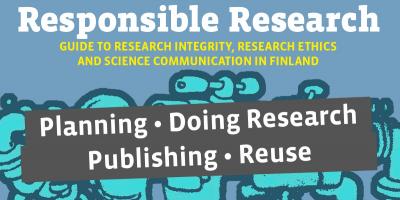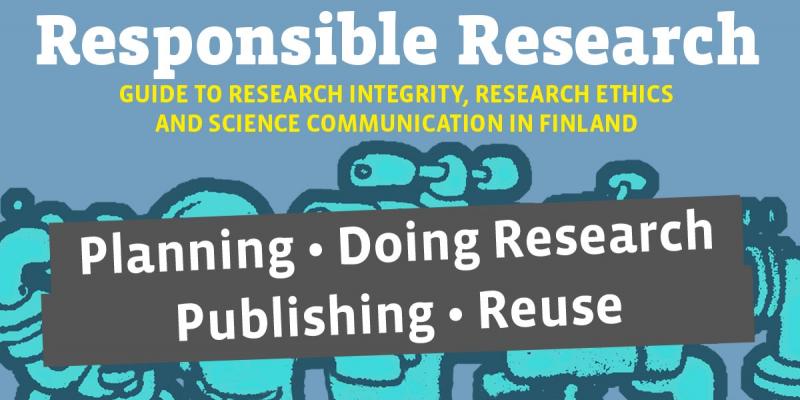If a researcher wants their findings to have an impact, they have to consider their audience’s opinions, world-view, and the challenges they face. These things might not become clear by simply reporting, but rather by engaging in dialogue.
Over the last decade, science communication has been landing on researcher’s desks with a thump. Researchers are expected to work ever harder at making their findings visible and impactful. Meanwhile, politicians and decision-makers are urged to base their decisions on the research data.
It is worth planning the publicity for the research project starting with the project’s goals. In many projects, one-way communication, for instance in the form of a blog post on a university’s web page, will do. But if the aim of the project is to change people’s behaviour, choices or decision-making, this kind of communication won’t get you too far.
But why? you might ask. Because there’s no apparent end to the flow of information. Cold facts are not enough, because people process new knowledge by reflecting on it through their own opinions and world-view. The better new information corresponds to one’s own opinion, the easier it will be to believe and adopt it.
To get your message through, you need to understand your target audience’s perspective on your research topic.
And how do you get to know what the public are thinking? By asking, discussing and listening. What is this government official working on at the moment? What challenges might a citizen need help with?
Seek and you will find – all the researcher has to do is to ask
When dealing with a sensitive research topic, open communication with your stakeholders is especially important at the beginning of your project. Pick up the phone. Explain concisely to the stakeholder’s representatives what your work is about and find out what in particular they find interesting about the topic. Don't be afraid to ask what they are currently working on and how they would like the research findings to be presented.
With an open and enquiring mind you might learn something new and unexpected about your own research topic.
Typically, the researcher tells about their work and then answers a few questions after the talk. But what if, for once, you were the one asking the questions? With an open and enquiring mind you might learn something new and unexpected about your own research topic.
Organize a project launch where, rather than a barrage of monologues, you engage in a mutual dialogue with your stakeholders. Draw a timeline of your project and plan the points at which you consult your stakeholders. Set up a panel with a representative of each group. Present your work to the panel regularly and ask them how they would like you to communicate your findings.
Maintain a dialogue
Stay in contact with the stakeholders: meet them face to face or talk on the phone. Ask how it’s going. Listen to what they have to say. Share your progress with them, so they can pitch in at the right time.
Divide responsibilities for communication among members of the research team. The responsibility for communication on Twitter could be given to those that take to social media like a duck to water. Meanwhile, those who enjoy the spotlight could invest their working hours on presenting the project at events. This way not everyone has to excel at every kind of communication. But do remember that communication skills can and should be improved, and that the art of writing takes practice.
Use dialogue and workshops as a means of gaining knowledge.
Use dialogue and workshops as a means of gaining knowledge. As part of the research, set up workshops in collaboration with the people whose views you want to consider. If your aim is to make research-based policy recommendations for reforming social security, sit down with the people who use those services.
It gets easier towards the end
If you have succeeded in building teamwork and regularly kept in contact with your stakeholders, completing the project should be easier. You already know the essential groups quite well and know how best to reach them.
Don’t shy away from assessing together with them what worked and what didn’t. Be open and share your experiences with others.
Iina Ala-Kurikka communicates at LIFE BOREALWOLF project, coordinated by the Natural Resources Institute Finland (Luke).
The article was translated from Finnish by English philology undergraduates Muriel Cambruzzi, Niklas Hiltunen, Aleksi Iso-Pärnä, Anton Jeskanen, Mia Jyrkinen, Anni Litja, Elmeri Naukkarinen, Katja Nummela, Terhi Pienimaa, Saana Pyyhtiä, Siina Sammalisto, and Suvi Valtanen, under the supervision of John Calton, lecturer in English, Department of Languages at the University of Helsinki.
You might also be interested in
Tämä teos on lisensoitu Creative Commons Nimeä 4.0 Kansainvälinen -lisenssillä. Detta verk är licensierat under en Creative Commons Erkännande 4.0 Licens. This work is licensed under a Creative Commons Attribution 4.0 International license.

